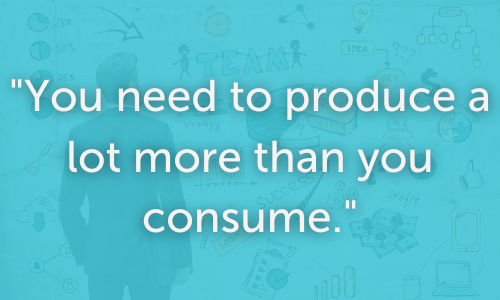Why Momentum Matters in Business Relationships
Choosing which businesses to partner with is an important decision. You want the relationship to align with your goals for long-term business success. Yet, it can be challenging to select the right partner when you can’t predict the outcome. This predicament is especially true when you’re vetting payroll and HR providers.
Business momentum is a significant indicator of how strong your relationship will be with another organization. A company’s momentum is telling of their business model and how they treat their customers. In this article, we’re going to discuss why momentum matters in business relationships. We’ll also talk about how you can leverage momentum awards to choose a payroll and HR partner.
Why Is Momentum Important for a Business?

Initiatives Move Forward

Goals are accomplished

Innovation occurs

Employees are proactive

Customers are happy
How Do Businesses Develop Momentum?
Momentum is built by ensuring that everything goes as planned. Industries gain momentum by practicing the 80/20 production vs. consumption rule. According to an article by Entrepreneur magazine, this means, “you need to produce a lot more than you consume.”
For every hour leadership or employees spend consuming (listening to podcasts, reading strategy materials, etc.), they spend at least four hours producing (writing content, developing strategy, measuring results, etc.).

How to Measure Momentum in Business
To understand the 80/20 rule and how it develops momentum, consider the momentum equation. To calculate momentum, you need the following pieces of information:
- Production (P): This is the number of items completed
- Motivation (M): On a scale of 1-10, determine how motivated the individuals involved in the project are
- Time (T): This is how long it takes to produce the items involved in the project

As you can see, production isn’t enough by itself. A payroll or HR provider must be motivated to produce results and spend the time making it happen. Once a business starts building momentum, motivation usually increases. This approach results in a cycle where more and more momentum is created and maintained.
Businesses that create sustainable momentum have developed goals that align with their company’s vision. These goals are clearly defined in a business plan, measured, and attained in a specified period.
Why Momentum Matters in Business Relationships
Investment in Employees
Momentum can tell you a lot about how a company treats its employees. This factor is vital in developing relationships because of the momentum spillover from an organization to its customers. As a company grows in revenue or production, its employees should evolve too.
If an organization grows and doesn’t support its staff with career development resources, employees will become dissatisfied. This dissatisfaction eventually trickles down to customers.
When you are researching payroll and HR software, it’s important to remember you will interact with that provider’s staff. Satisfied employees produce satisfied customers. As Richard Branson of Virgin Mobile said, “Clients do not come first. Employees come first. If you take care of your employees, they will take care of the clients.”
The Customer Experience
According to an article by Business Blogs, “once a business loses sight of the importance of supporting and helping their customers, momentum is lost.” Momentum is also crucial to a business relationship because it affects customer satisfaction. Companies with high levels of momentum usually create or update products for their customers more frequently. The result is more satisfied and happier clients.
Organizations with established momentum are also effective at listening to their clients. Businesses that ask for feedback demonstrate to their customers that they are important and that they are a driving force behind decision-making.
Take the Guesswork Out of Business Momentum
If you’re not a numbers person, you can use sources like G2 to determine a provider’s business momentum automatically. Their Momentum badge scoring methodology incorporates several factors into the calculation, including:
- Employee growth and investment
- Customer satisfaction
- Presence in the market
Payroll and HR providers that earn this badge display their ability to put customers first. They spearhead technology in their industry because they are continually trying to create an experience that makes the most sense for their users. G2 Momentum Leaders know that a successful user experience produces a successful customer experience.
Consider Momentum in Your Business Relationships
When vetting payroll and HR solutions, include momentum in your research process. To determine whether the company has momentum, ask the following questions about the company’s awards, mission, and goals:
- What importance do you place on customer relationships and satisfaction?
- Do you invest in your employee development and growth?
- Does the company listen to customer and employee feedback?
- What are the business goals for enhancing the user experience?
- Do you have any evidence to support demonstrated business momentum (e.g., achievements)?
From these questions, you can determine whether the provider successfully grows and maintains its products and services. This insight will help you make an informed decision when it comes time to implement a new payroll and HR solution. Remember, every successful business works for the good of its employees and customers.
About APS
G2 has recognized APS as a Leader in Momentum. For APS, our customers are the reason we build and maintain momentum. They are the driving force behind the technology we develop. Our focus on customer experience is why we continue to pursue a goal of making payroll and HR easier.
We provide our clients and partners with intuitive technology delivered with personalized service and support. Businesses choose APS as their workforce partner because of our focus on the customer experience, starting from the moment they begin vetting our system.



